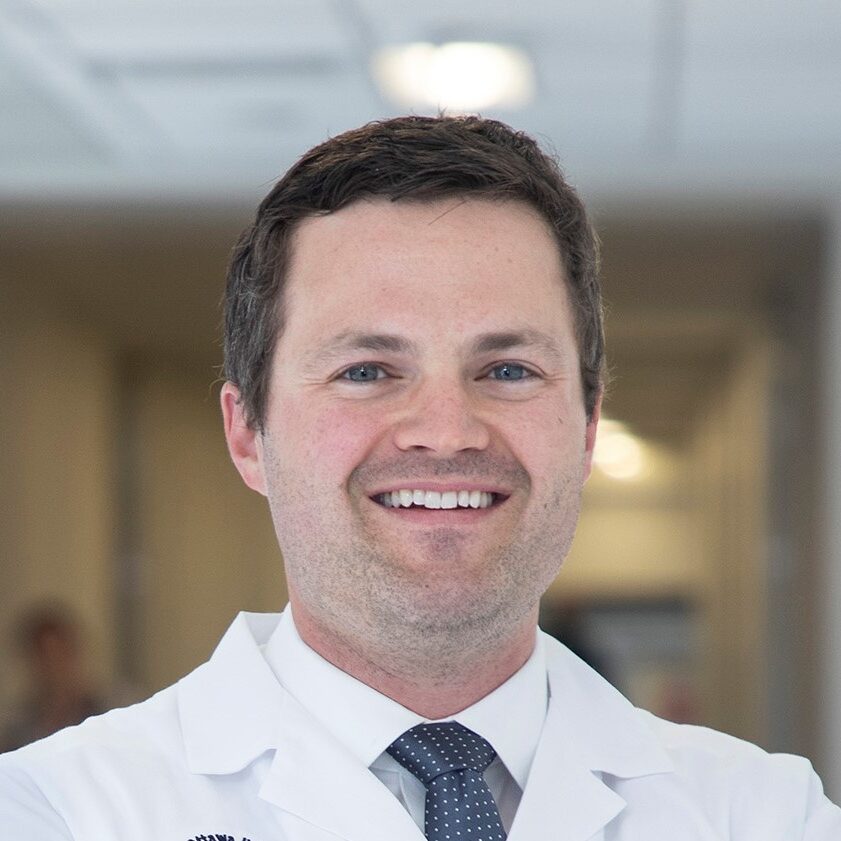 Daniel I. McIsaac, MD, MPH, FRCPC
Daniel I. McIsaac, MD, MPH, FRCPC
Professor, Department of Anesthesiology & Pain Medicine, University of Ottawa
Professor, Epidemiology & Public Health, University of Ottawa
Chair in Innovative Perioperative Care, Faculty of Medicine, University of Ottawa
Scientist, Ottawa Hospital Research Institute
Ottawa, Ontario, Canada
Dr. Mclsaac’s Research
A PSH for the Frail Elderly (Phase 3): Prehabilitation of Frail Elderly
The rapid aging of our population means that anesthesiologists care for elderly patients with increasing regularity. Although age is an independent predictor or adverse postoperative outcomes, significant outcome variation exists among older surgical patients. Frailty, a syndrome that describes am aggregate susceptibility to adverse health outcomes due to age-, and disease-related deficits that accumulate across multiple domains is a key predictor of adverse postoperative outcomes in elderly patients. Frail surgical patients are at increased risk of complications, institutionalization, death, and are high healthcare resource users. Multiple stakeholders, including anesthesiologists and patients, have identified improving the outcomes of older patients and preoperative exercise training (prehabilitation) as 2 of the 10 most important areas for future perioperative research. Physical vulnerability is an important aspect of the frailty syndrome, and may be amenable to structured exercise therapy. However, the evidence for preoperative exercise training (prehabilitation) improving postoperative outcomes is obscured by methodological limitations and a focus on non-elderly patients. Recently, evidence has emerged that older and sicker patients may benefit most from prehab, however, this hypothesis has not been formally tested. Because the complex needs of frail perioperative patients require a longitudinal and multidisciplinary approach, our research group is developing a perioperative surgical home for the frail elderly (PSH-Frail). Development of the PSH-Frail is supported by a robust data collection system, including linkage of prospectively collected data to health administrative data infrastructure to improve efficiency and long-term follow up. We hypothesize that prehabilitation will be a vital intervention supported by the PSH frail, however, high quality evidence from randomized trials is needed to support its efficacy. Therefore, we propose a single center randomized controlled trial of prehabilitation of frail elderly patients having elective intraperitoneal cancer surgery to improve postoperative function (primary outcome), and to decrease postoperative resource utilization (secondary outcomes).
Related Publication
Home-based prehabilitation with exercise to improve postoperative recovery for older adults with frailty having cancer surgery: the PREHAB randomised clinical trial
Daniel I McIsaac, et al.
Frailty is a state of vulnerability as a result of decreased reserves. Prehabilitation may increase reserve and improve postoperative outcomes. Researchers utilized a double blind randomised trial with 204 people ≥60 yr having elective cancer surgery and ≥3 weeks from enrolment to surgery to determine if home-based prehabilitation improves postoperative functional recovery in older adults with frailty having cancer surgery. Participation in a remotely supported, home-based exercise prehabilitation program plus nutritional guidance was compared with standard care plus written advice on age-appropriate activity and nutrition. The primary outcome was 6-min walk test (6MWT) distance at the first postoperative clinic visit. Secondary outcomes included physical performance, quality of life, disability, length of stay, non-home discharge, and 30-day readmission. Findings show that a home-based prehabilitation program did not significantly improve postoperative recovery or other outcomes in older adults with frailty having cancer surgery; program adherence may be a key mediator of prehabilitation efficacy.
International Anesthesia Research Society
